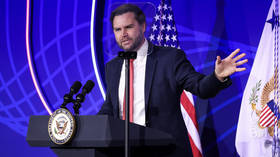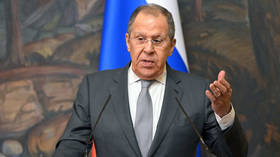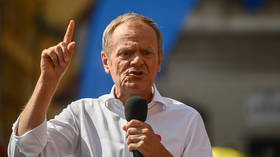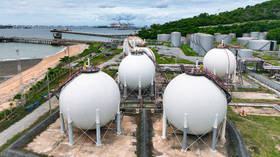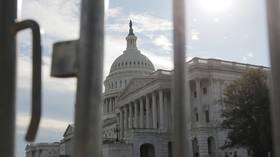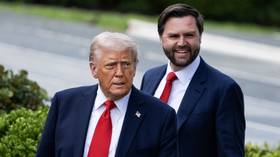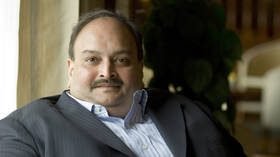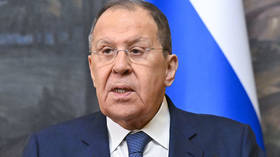Chilcot Inquiry live reaction
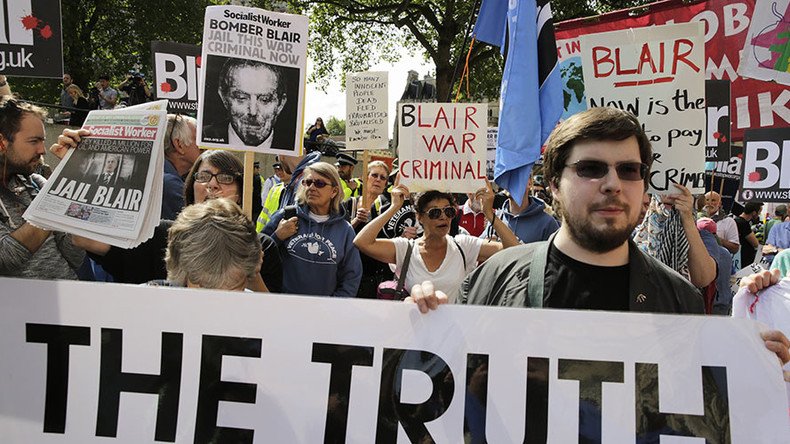
Sir John Chilcot has published his long delayed report on Britain's involvement in the planning, invasion and aftermath of the 2003 Iraq War. Live reaction as we get it.
06 July 2016
13:32 GMTBlair blames Saddam
Blair denies making a decision on Iraq at Crawford in Texas at a meeting with President Bush, and pushed “a reluctant US administration” to comply with the UN.
The final choice was made after 6 tests, which Saddam Hussein should’ve have complied with, he says. “If he had passed, it wouldn't have gone into military action.”
- 13:30 GMT
Blair pleads 'good faith'
"The world was and is in my judgment, a safer better place without Saddam Hussein,” Blair adds.
He says “there was no secret commitment to war” and that “the decision was made in good faith”
He also acknowledges the criticisms made in the report, despite not agreeing with them
- 13:25 GMT
Blair takes 'full responsibility'
Tony Blair says the decision to go to war in Iraq “was my hardest” decision as prime minister.
He says he expresses “sorrow” and “regret” for the death toll of the war, but adds that he disagrees with people who say the British invasion led to the circumstances in the Middle East today.
- 13:04 GMT
Labour shadow chancellor John McDonnell re-posts his verdict on Iraq from 2003
I welcome today's report by Sir John Chilcot. Here's what I said in 2003 about the Iraq war. pic.twitter.com/ZhTlMkdNfG
— John McDonnell MP (@johnmcdonnellMP) July 6, 2016 - 12:53 GMT
‘Mistakes yes, but no lies’: Spin doctor Alastair Campbell responds to Chilcot
Alastair Campbell, who was Tony Blair’s head of communications in the run up to the Iraq war, said the “sexing up of intelligence never happened,” in light of the Chilcot Report.
Campbell has been widely seen as exaggerating a crucial dossier in September 2002, which subsequently led to the UK invading Iraq.
blog: mistakes yes, but no lies, deceit, secret deals, 'sexing up'. And ultimately a matter of leadership/judgement https://t.co/MZ9NFYWg4p
— Alastair Campbell (@campbellclaret) July 6, 2016The broadcaster also commended Blair for his decisions, and said if anything the former prime minister tried to avoid going to war.
“Far from seeing someone hell bent on war, I saw someone doing all he could to avoid it,” Campbell said.
“Far from seeing someone undermine the UN, I saw him trying his hardest to make it work. Far from seeing someone cavalier about the consequences of war, I saw someone who agonised about them, and I know he still does, as do all who were there, part of his team.”
Campbell continued to defend his former boss, stating that “there is a difference” between him and other politicians and how Blair felt “agonies” over the death toll of British troops and Iraqi civilians.
“For all the faults in Iraq today, a world without Saddam and his sons in charge of Iraq is a better and safer world, and those who gave their lives to make it happen did not, in my view, die in vain,” he added.
On “mistakes” from the war, Campbell said criticism was justified in relation to the aftermath and “that we sincerely believed the intelligence on WMD, and we believed Saddam might use them because he had done so when threatened in the past.”
- 12:10 GMT
SNP’s Alex Salmond calls for ‘legal consequences’ against Blair following Chilcot
Alex Salmond released a damning statement against Tony Blair following the release of the Chilcot Report, stating that the former prime minister “recklessly committed the country to war without collective judgement.”
We must now consider what political or legal consequences are appropriate for those responsible. #Chilcothttps://t.co/CVZcJBnkEu
— Alex Salmond (@AlexSalmond) July 6, 2016“We now know that long before Parliament formally voted on whether or not to go to war in Iraq, Tony Blair had told George Bush - ‘I will be with you forever,’” Salmond said.
The MP, who was Scotland’s first minister between 2007 to 2014 had been highly critical of Tony Blair’s decision to invade Iraq before the report was released.
He said the Chilcot Report found that Blair had not been prepared for the consequences of war and “failed to ensure there was a plan for delivering a future for the people of Iraq.”
Salmond had previously called for people to be held accountable for the Iraq war if strong evidence of wrongdoing was found in the Chilcot Report.
“After such carnage, people will ask inevitable questions of, was conflict inevitable and worthwhile? The answer from Chilcot is undoubtedly no. And who is responsible? The answer is undoubtedly Tony Blair. There must now be a consideration of what political or legal consequences are appropriate for those responsible,” Salmon added in the statement.
He also suggested this week that Tony Blair could be tried for war crimes in Scotland if the English courts failed to take action.
- 11:56 GMT
Labour leader Jeremy Corbyn responds to Chilcot
Jeremy Corbyn begins by commemorating the victims of the Iraq war and says the length of time taken to conclude the Chilcot Inquiry is a “matter of regret.”
Labour MP Ian Austin shouting at Corbyn in the Commons: "Sit down and shut up... You're a disgrace."
— Matt Chorley (@MattChorley) July 6, 2016“It lead to the deaths of hundreds of thousands of people,” Corbyn says, adding that it “fostered sectarianism” and became a catastrophe for the people of Iraq.
Corbyn says many people took to the streets on February 15, 2003, against the invasion. He calls the WMD evidence “flimsy.”
He says the war in Iraq was illegal and the British government did not get backing from the UN.
Corbyn says many people did not get “satisfaction” from the report. He pays tribute to former foreign secretary Robin Cook. There are damning issues addressed in the report, he adds.
Some gasps as Corbyn denounces "colonial-style occupation".
— George Eaton (@georgeeaton) July 6, 2016Calling it a “colonial-style occupation,” Corbyn slams the 45-minute claim, along with the “dodgy dossier” that led to the intervention.
Corbyn says the Iraq war increased terrorism across Iraq and adds that there are many lessons to be drawn from the Chilcot Inquiry.
Oversight of intelligence is needed along with the assistance of the UN, Corbyn adds.
“There are huge lessons for every single one of use today,” Corbyn says.
In response to Corbyn, Cameron says violence started long before Iraq and 9/11 and “these are important things to remember,” but adds there were failures.
The PM recommends setting out better protocol with intelligence agencies and highlights the UK’s strong relationship with the US.
- 11:51 GMT
Russian Embassy shares gloating Tweet
#Chilcot inquiry: No real WMD in Baghdad, unjust & highly dangerous war. The entire region on the receiving end. pic.twitter.com/UoL09xfqqQ
— Russian Embassy, UK (@RussianEmbassy) July 6, 2016 - 11:46 GMT
David Cameron tells Parliament Chilcot found there was genuine belief that Saddam Hussein posed a threat and was trying to obtain nuclear weapons, adding that Tony Blair did not improperly influence the crucial 2002 dossier about Iraq’s WMD.
Cameron says the Chilcot Report doesn’t express whether the war was legal but it certainly doesn’t find there was a deliberate intention by Blair to mislead people.
Chilcot outlined how the UK forces were not provided with appropriate equipment and that the Ministry of Defence (MoD) was slow to respond to threats from improvised explosive devices, the PM said.
He also added that armed forces were told by the government to focus on withdrawing from Iraq instead of focusing on other key areas.
Cameron adds that MPs who voted for the war should take a share of the responsibility. He then turns to “lessons” that must be learned.
War should be a last resort, he says. He highlights his past decision to set up the national security council and says resources are important for the armed forces.
Cameron concludes that military intervention should not be outruled in future as a result of the report.
PM: We can't turn back the clock. But we can ensure that lessons from the Chilcot report are learnt and acted on.
— UK Prime Minister (@Number10gov) July 6, 2016PM: Taking the country to war should always be a last resort and should only be done if all credible alternatives have been exhausted.
— UK Prime Minister (@Number10gov) July 6, 2016PM: On my first day in office, I established the National Security Council to ensure proper co-ordinated decision-making across Government.
— UK Prime Minister (@Number10gov) July 6, 2016 - 11:39 GMT
PM David Cameron says there will be a 2 day debate on Chilcot findings next week
PM: This has been a fully independent inquiry. MPs will have 2 days to debate it next week. #Chilcot
— UK Prime Minister (@Number10gov) July 6, 2016



